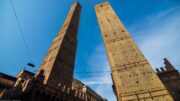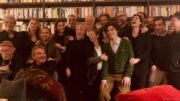The American documentarist, playwright and Oscar winner for Best Documentary 2017 with Icarus, Bryan Fogel, starring in a conversation at MIA|DOC.
The story of Bryan Fogel and his documentary Icarus at MIA 2018 in a special meeting in which the Oscar winner reveals, among other things, the birth of such an important project in his career. Everything starts in 2014: Fogel has been a cycling enthusiast since he was a child and his hero, until the previous year, has been the cyclist Lance Armstrong, winner of the Tour de France from 1998 to 2005. In 2013 Armstrong lost every previously won title due to doping.
“I was a fan of Lance Armstrong,” says Fogel, “and when I found out he was doping, I was shocked that no one had discovered it. And to find it out, he made a decision: to take part in the Haute Route, the toughest amateur cycling competition, using various doping substances, to see how and how much they would improve his performance and find out how to falsify the tests. “I decided to investigate this thing like an amateur athlete – reveals Fogel -. If I could beat every test what would the other athletes do?
At first helping the documentary maker there was Dan Catlin, the founder of the first UCLA Olympic testing laboratory. However, after a few weeks Catlin retired because of a conflict of interest. At this point, the Russian scientist Grigorij Rodčenkov, director of the Russian anti-doping laboratory, enters the scene. After a year and a half of preparation Fogel participates in the race, realizing that the biggest change is in his ability to recover: while the year before he had to make a long rehabilitation path to recover, at the end of the race he even declares to be ready for another week of competition.
And about Grigorij Rodčenkov, Fogel admits: “I was worried about working with Grigorij Rodčenkov, because the release of my documentary would have destroyed his career.
Talking about the beginning of his career, Bryan Fogel confesses, “In order to do my first show, Jewtopia, I got into debt, but we took it to America and it was a huge success.”




